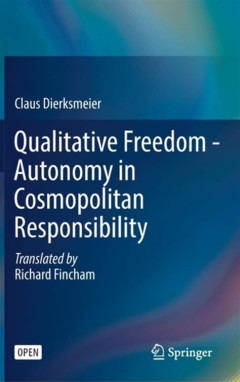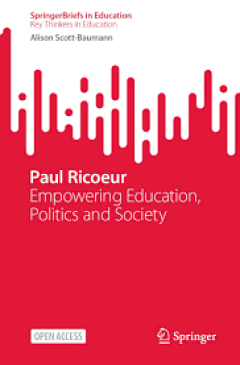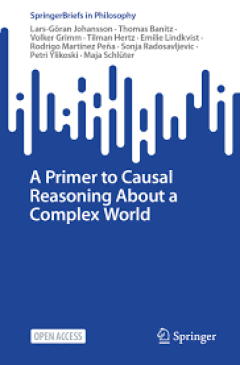Filter by

Childlessness in Europe: Contexts, Causes, and Consequences
This open access book provides an overview of childlessness throughout Europe. It offers a collection of papers written by leading demographers and sociologists that examine contexts, causes, and consequences of childlessness in countries throughout the region.The book features data from all over Europe. It specifically highlights patterns of childlessness in Germany, France, the United Kingdom…
- Edition
- -
- ISBN/ISSN
- 9783319446677
- Collation
- XI, 370
- Series Title
- -
- Call Number
- -

Qualitative Freedom - Autonomy in Cosmopolitan Responsibility
In the light of growing political and religious fundamentalism, this open access book defends the idea of freedom as paramount for the attempt to find common ethical ground in the age of globality. The book sets out to examine as yet unexhausted ways to boost the resilience of the principle of liberalism. Critically reviewing the last 200 years of the philosophy of freedom, it revises the princ…
- Edition
- 1
- ISBN/ISSN
- 9783030047238
- Collation
- X, 365 hlm,: ill, lamp;
- Series Title
- -
- Call Number
- -

Agricultural Implications of the Fukushima Nuclear Accident (III)
This open access book presents the findings from on-site research into radioactive cesium contamination in various agricultural systems affected by the Fukushima Daiichi Nuclear Power Plant accident in March 2011. This third volume in the series reports on studies undertaken at contaminated sites such as farmland, forests, and marine and freshwater environments, with a particular focus on lives…
- Edition
- -
- ISBN/ISSN
- 9789811332180
- Collation
- XI, 248hlm,: ill, lamp;
- Series Title
- -
- Call Number
- -

Der junge Carnap in historischem Kontext: 1918–1935 / Young Carnap in an Hi…
This open access volume is based on the 'Early Carnap in Context’ workshop that took place in Konstanz in 2017 and looks at Rudolf Carnap’s philosophy, documented in his recently released diaries, from a combination of historical, cultural and philosophical perspectives. It enables further evaluation of the diaries and traces newly found interrelationships and their systematic definition. F…
- Edition
- -
- ISBN/ISSN
- 978-3-030-58251-7
- Collation
- XIV, 264
- Series Title
- -
- Call Number
- -

Handbook of Military Sciences
This open access handbook is a major reference work in the field of Military Sciences. Its main purpose is to inform and enlighten those dealing with the military on the role and contributions of science in describing, understanding and explaining military life, knowledge and doings. The handbook provides a comprehensive thematic introduction to various sub-fields of Military Sciences. The …
- Edition
- 1
- ISBN/ISSN
- 9783030028664
- Collation
- -
- Series Title
- -
- Call Number
- -

Animals in Our Midst: The Challenges of Co-existing with Animals in the Anthr…
This Open Access book brings together authoritative voices in animal and environmental ethics, who address the many different facets of changing human-animal relationships in the Anthropocene. As we are living in complex times, the issue of how to establish meaningful relationships with other animals under Anthropocene conditions needs to be approached from a multitude of angles. This book offe…
- Edition
- -
- ISBN/ISSN
- 978-3-030-63523-7
- Collation
- XV, 579
- Series Title
- -
- Call Number
- -

Paul Ricoeur : Empowering Education, Politics and Society
This open access book employs Paul Ricoeur's methodologies to identify, challenge, and replace with responsible language the many continuing abuses of power, including in the university curriculum and in the international discourse of right-wing populism. Using Ricoeur’s philosophy, the book provides a meta-frame for current debates about the university and a pragmatic micro-frame for support…
- Edition
- -
- ISBN/ISSN
- 978-981-99-3475-1
- Collation
- XI, 122
- Series Title
- SpringerBriefs in Education (BRIEFSEDUCAT)
- Call Number
- 370 SCO p

The Models of Engaged Learning and Teaching : Connecting Sophisticated Thinki…
This book provides a practical philosophy for promoting students' sophisticated thinking from Early Childhood to PhD in ways that explicitly interconnect across the years of education. It will help teachers, academics and the broader learning and teaching community to understand and implement these connections by introducing a conceptual framework, the Models of Engaged Learning and Teaching (M…
- Edition
- -
- ISBN/ISSN
- 978-981-15-2683-1
- Collation
- XIX, 140
- Series Title
- SpringerBriefs in Education (BRIEFSEDUCAT)
- Call Number
- 370 WIL m

A Primer to Causal Reasoning About a Complex World
This open access book is about causal thinking and the use of causal language, with a focus on introducing philosophical ideas about causation to students and researchers of Social-Ecological Systems (SES). It takes a systematic approach to three central topics: the meanings of different causal expressions, sufficiency of evidence for inferences from observations to causal relations, and how t…
- Edition
- -
- ISBN/ISSN
- 978-3-031-59135-8
- Collation
- XII, 150
- Series Title
- SpringerBriefs in Philosophy (BRIEFSPHILOSOPH)
- Call Number
- 501 JOH p

Sisters of the Brotherhood: Alienation and Inclusion in Learning Philosophy
This open access book explores the gendered reality of learning philosophy at the university level, investigating the ways in which women and minority students become alienated from the social practices of a male-dominated field, and examining pedagogical solutions to this problem. It covers the roles and the interactions of the professor and student in the following ways: (1) the historical si…
- Edition
- -
- ISBN/ISSN
- 978-3-031-16670-9
- Collation
- XI, 97
- Series Title
- SpringerBriefs in Philosophy (BRIEFSPHILOSOPH)
- Call Number
- 100 RUO s
 Computer Science, Information & General Works
Computer Science, Information & General Works  Philosophy & Psychology
Philosophy & Psychology  Religion
Religion  Social Sciences
Social Sciences  Language
Language  Pure Science
Pure Science  Applied Sciences
Applied Sciences  Art & Recreation
Art & Recreation  Literature
Literature  History & Geography
History & Geography